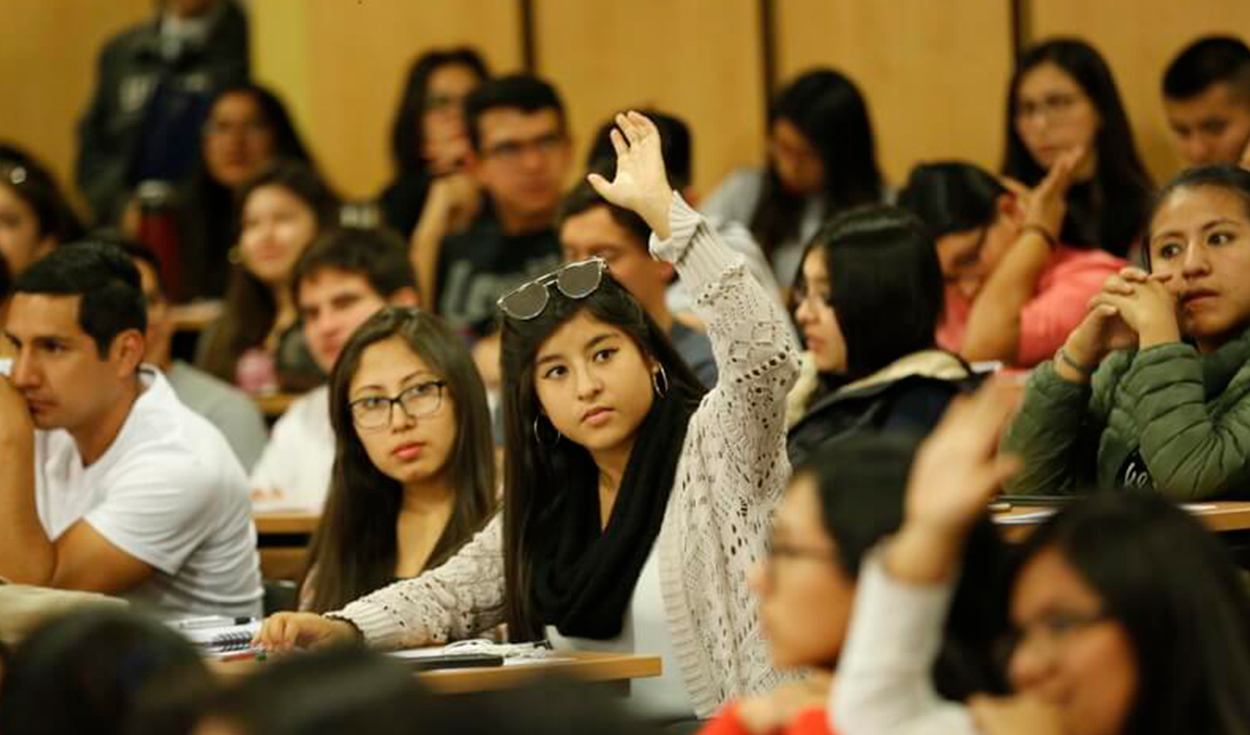
European countries achieve the highest scores. Switzerland remains in first place with 100 points, while Peru achieved a score of 49.4.
According to the 2022 results of the World Talent Ranking prepared by the Institute of Management Development (IMD) of Switzerland in alliance with Centrum PUCP, Peru rises 16 positions worldwide compared to the results of the previous year, ranking 46th with 49.4 points in the general ranking, on a scale of 0 to 100 points. This is mainly explained by the progress in the Preparedness and Investment and Development factors.
It should also be noted that for the first time it leads the group of countries that make up the Pacific Alliance; however, none of the members of the regional bloc exceed 50 points.
At the time of the pandemic, the effect of the measures applied to counteract the social restriction notoriously affected the least competitive countries such as Peru, where it drastically impacted the growth of the labor force, due to the decrease in a considerable number of jobs, affecting plus the formal sector.
In addition, in the indicators that evaluate the quality and achievements in education, inadequate levels continue to be registered. In primary and secondary education, Peru is in position 60, in university education, in position 55, in language skills, in position 57, among others.
In this regard, Luis del Carpio, director of the Office for the Transfer of Research Results (OTRI) of Centrum PUCP, pointed out that despite the fact that three of the four countries that make up the Pacific Alliance rose some positions, they register scores below of 50 points, which highlights the importance of continuing to improve in the factors evaluated.
“The strengths of some indicators will not be enough to continue advancing and climb positions in the rankingTherefore, the agents of change must continue to take into account those weak indicators and begin to strengthen them by adopting the good practices of other countries that achieve better results in indicators of health infrastructure, the labor force, among others, in association with the private sector”, commented Luis del Carpio of Centrum PUCP.
Which are the countries that lead the ranking?
In this new edition of the ranking, European countries reach the highest scores. In first place, Switzerland remains registering 100 points (the maximum score) with its main strengths in the Attraction and Investment and Development factors. This economy continues to be attractive to highly-skilled foreigners experiencing a weak brain drain.
In second place is Sweden with 88.7 points, followed by Iceland with 85.7, which is up four positions compared to last year.
It should also be noted that the United States is in 16th place, with 75.7 points, falling two positions compared to 2021. On the other hand, Qatar, the country where the last World Cup was held, occupies the position 33 and fell three positions compared to the previous year.
What is the World Talent Ranking?
This ranking evaluates 63 countries according to their ability to develop and attract talent to strengthen their economyand is considered the most important instrument to implement human talent management policies that seek to improve the conditions that are necessary for professional and personal development, and increase the quality of education from the school stage.
The ranking evaluates all countries in three factors: (a) Investment and Development, (b) Attraction and, (c) Preparation. In addition, in each factor a certain number of indicators or variables are considered, which in total add up to 31.
- The Investment and Development factor studies the size of public investment in education incorporating an indicator of public spending, in addition to analyzing the quality of education through indicators that take into account the student-teacher relationship.
- The Pull Factor it analyzes, among other criteria, the capacity of a country to take advantage of foreign talent, through cost and quality of life indicators; the impact of the brain drain on the competitiveness of countries; the level of motivation of the workers; wages and tax levels; personal safety and protection of private property rights.
- The Preparedness Factor examines the context in which talent is found, as it studies the growth of the workforce and the quality of available skills; the experience and skills of managers; the capacity of the education system to meet the talent needs of companies; how the educational system meets the talent demands of the economy; the ability of higher education to meet that demand; language skills; student mobility (input); as well as the educational evaluation (PISA).
Source: Larepublica
Alia is a professional author and journalist, working at 247 news agency. She writes on various topics from economy news to general interest pieces, providing readers with relevant and informative content. With years of experience, she brings a unique perspective and in-depth analysis to her work.












